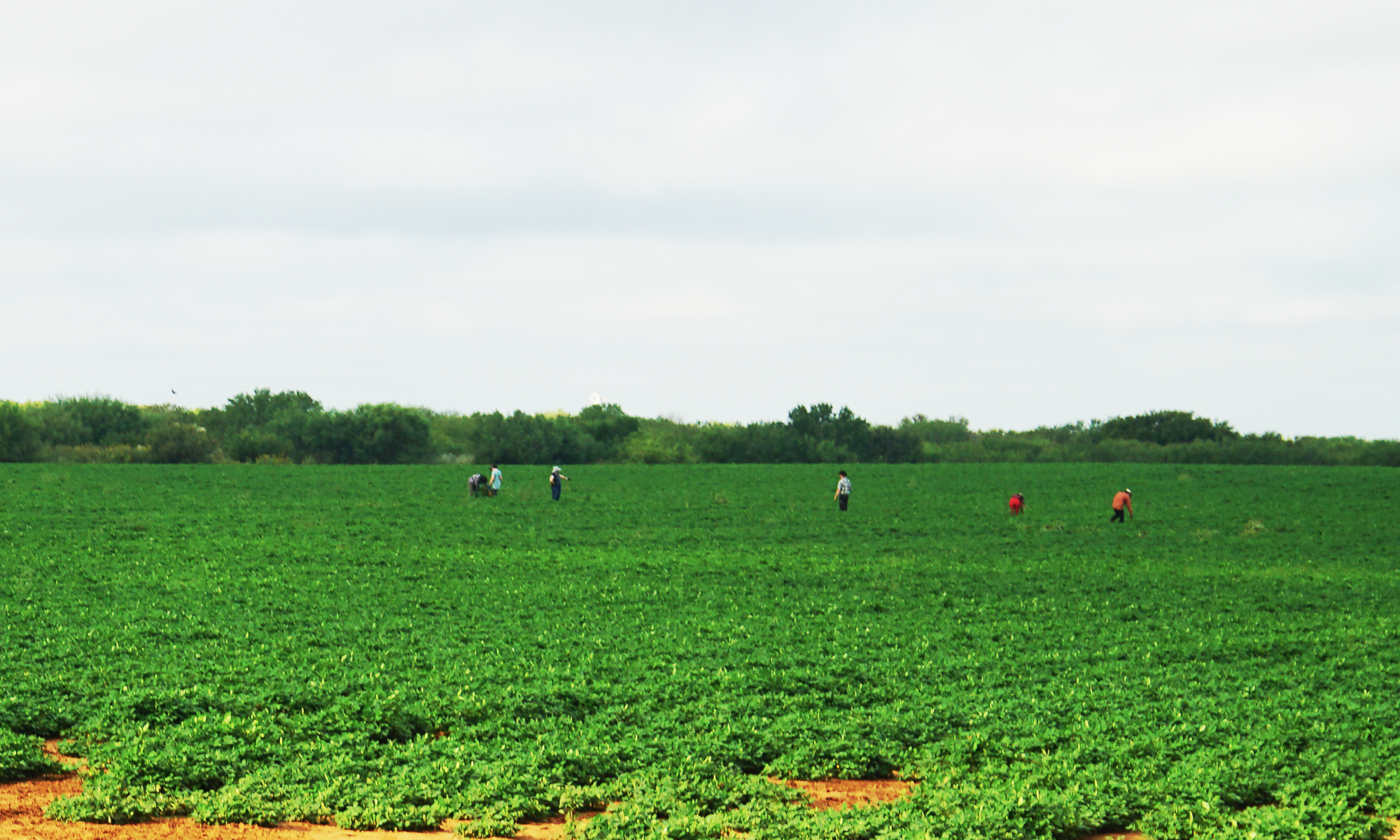By Giles Lambertson, Area Media Specialist
The Church of Jesus Christ of Latter-day Saints operates 33 nonprofit farms in the U.S. They supply the Church’s welfare system with foodstuffs of many kinds. Some 50 miles southeast of Uvalde near Pearsall, one of these farms principally raises peanuts.
Eagle Pass District members—and members in eight San Antonio stakes—volunteer at the farm during the growing season, weeding and hoeing fields, clearing fences of brush, and otherwise contributing their sweat equity toward the success of the enterprise. District members are scheduled to work there later in June.

The Church acquired and began to operate the farm more than a half-century ago. Of the farm’s 2,000 acres, 750 are tilled. Again this year, 250 acres of that tilled soil have been leased to a local farmer for raising of cotton. Farm manager Michael Hurst explains that rotating the irrigated land among different crops helps maintain the soil’s fertility.
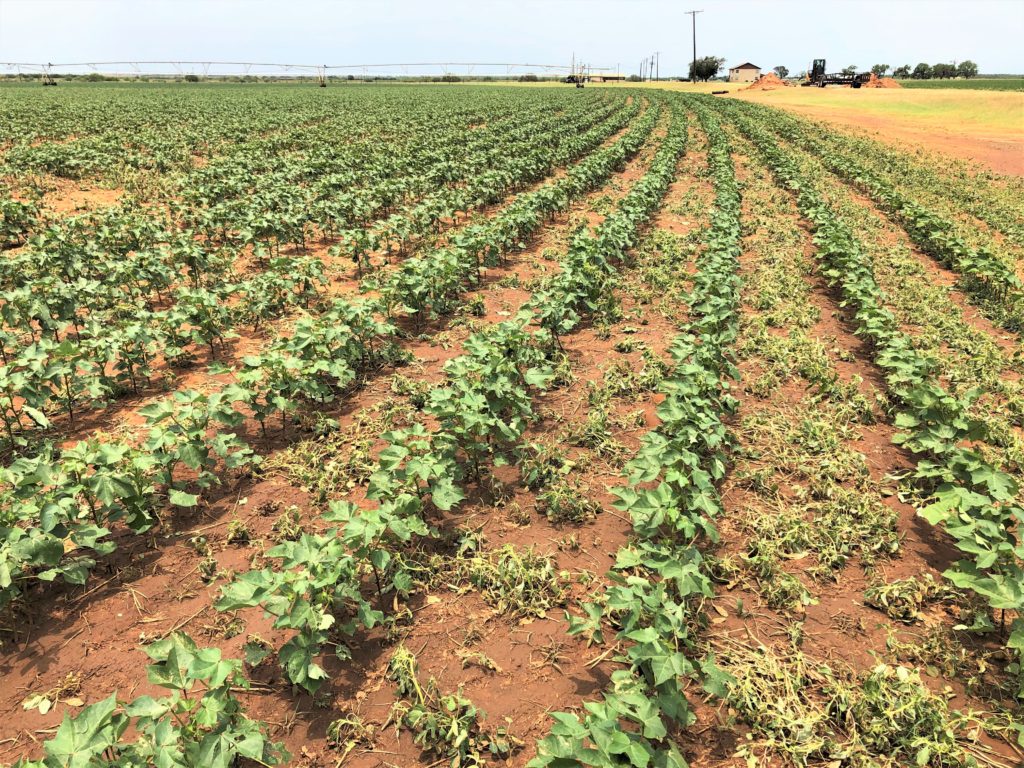
Another crop rotation method is to let some fields lay fallow each year, which is to say, to go uncultivated. The downside to doing that are the pernicious plants that take root in the undisturbed soil. “Fallowing is great, but fallow ground can get really wild and weedy.” Weed seeds are not a desired fruit.
This year, the land also is being plowed. “The soil hasn’t been plowed in years,” Hurst says, meaning it hasn’t been turned over so that surface soil is flipped beneath upturned soil. Two six-bottom plows handily accomplish that.
The farm manager knows agriculture. Born in Killeen 49 years ago, he has farmed and ranched for most of his adult life, taking over management of the peanut farm a year and a half ago. In 2014, the manager broadened his professional capacity in a dramatic way: He enrolled at the University of Colorado and earned an information technology degree.
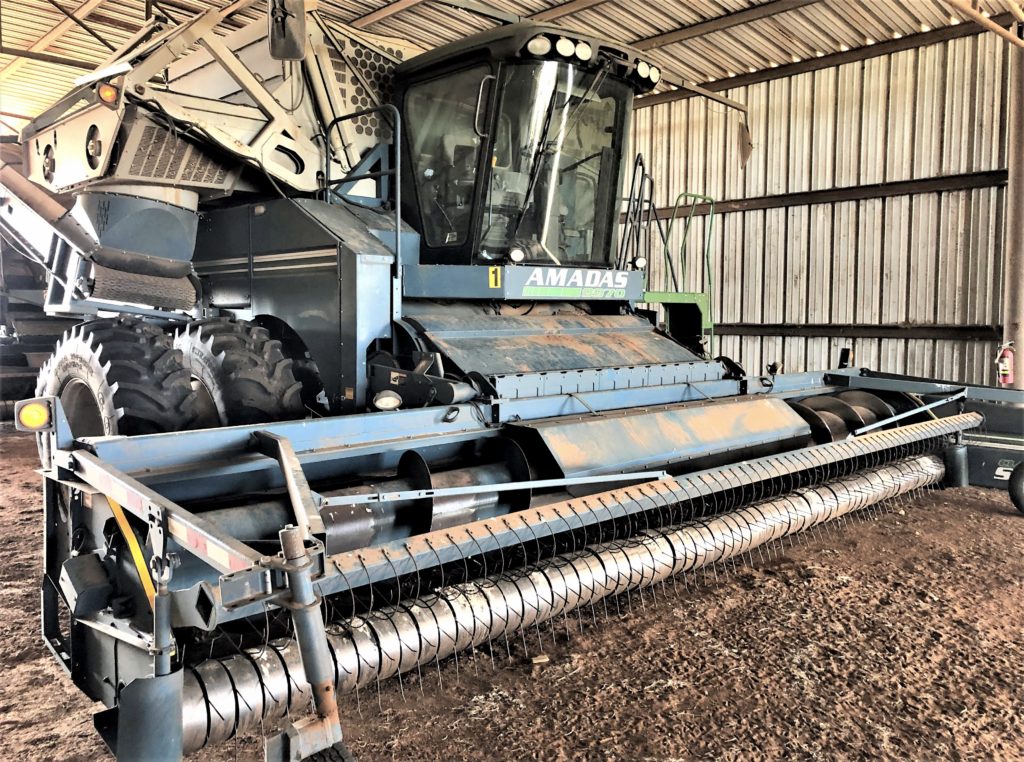
While the manager has just one employee to help him maintain the church’s 2,000 acres, he has large machinery at his disposal. The farm’s John Deere 6R, for example, is a 120-hp, seven-ton utility tractor with a variable speed transmission that lends itself to a host of tasks. Two John Deere 8R tractors are the farm’s big boys—each twice as heavy as the 6R with engines twice as powerful.
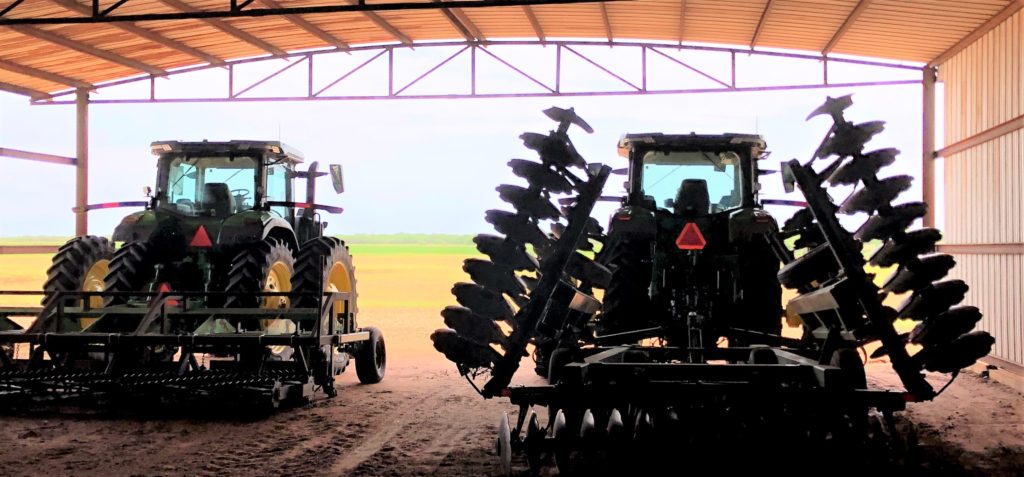
During two weeks in May, a six-row planter was loaded with seed and officially began the farm’s 2022 growing season. Some 250 acres of peanuts were planted. Another 250 acres will be planted in the next few weeks.
The planted fields will be groomed through the summer and the new crop of peanuts harvested in September. Two specialty pieces of machinery are housed in the farm’s equipment shed for that purpose: Amadas self-propelled combines, which are exclusively engineered to harvest peanuts.
Some of the planted acreage received seed for Spanish peanuts, the manager says, which are especially useful in confectionery products, such as coated-peanut candies. But most of the acres are growing Runner peanuts. They have characteristics that make them ideal for such products as… peanut butter.
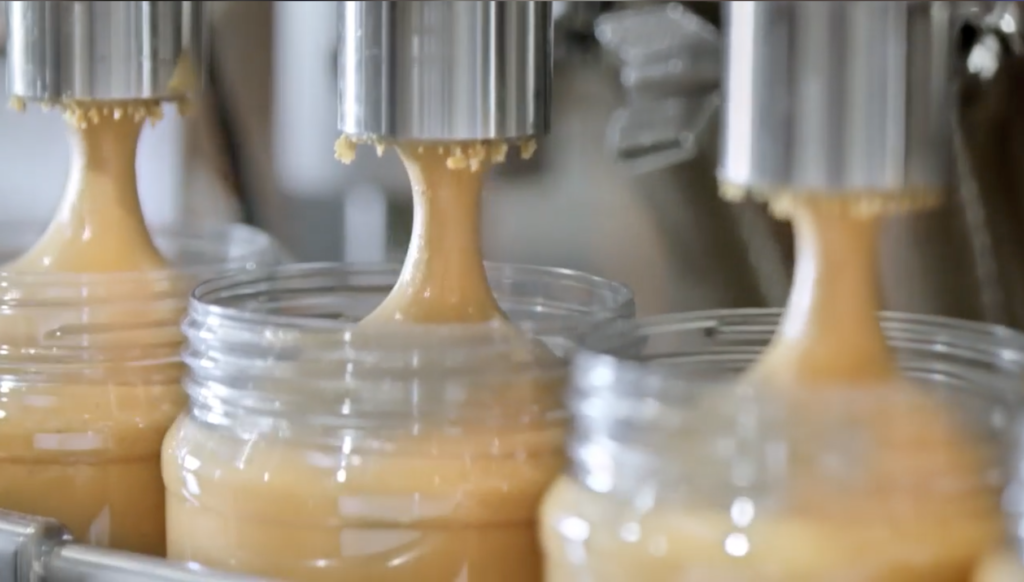
“Last year, the farm produced 2.6 million pounds of peanuts, which was turned into 2.6 million jars of peanut butter,” Hurst says. Most of the raw peanuts are trucked to Houston, where the Church owns and operates a peanut butter cannery. The plastic jars of delicious sandwich spread eventually end up in Church welfare warehouses, as well as with the Houston Food Bank and the Feeding America network of welfare outlets.
Bottom line: ‘Tis the season for Church members to roll up their sleeves and head for the farm.
